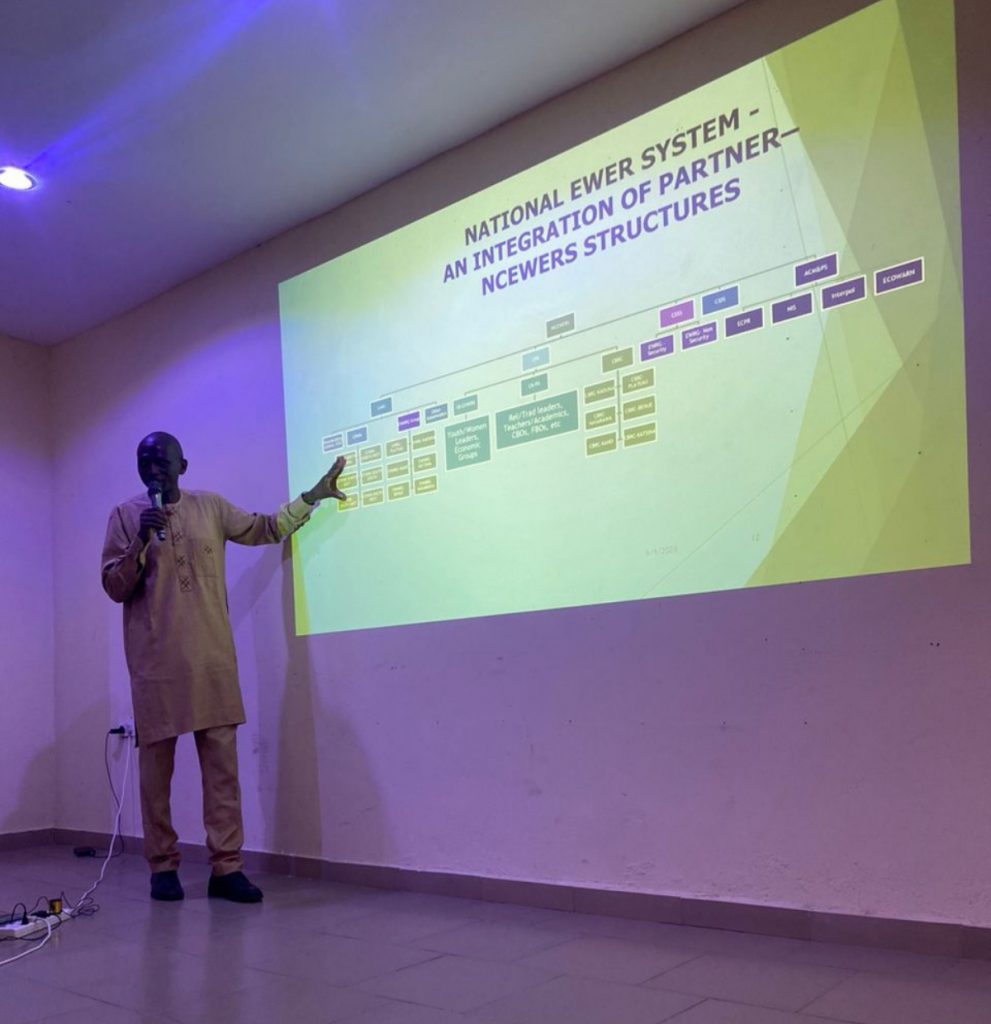…educates stakeholders how to identify conflict indicators and respond appropriately
Institute for Peace and Conflict Resolution has initiated and adopted information and communication technological related applications to monitor indicators of conflict with the view to curbing and containing crises at the formative stage in the country.
Sequel to this, the initiative which is to enhance Early Warning Early Response EWER is being implemented by the Peace Action for Rapid Transformative Nigerian Early Response (PARTNER) and sponsored by USAID and other project consortium to include West Africa Network for Peacebuilding WANEP, Plateau Peacebuilding Agency PPBA, Kaduna State Peace Commission KSPC, Mercy Corps Nigeria among others.
The Institute for Peace and Conflict Resolution is currently implementing its technology driven conflict Early Warning Response system (CEWERS) with integrated community peace infrastructures and early warning response components in North Central and North west; nine states and 49 communities to enhance effective conflict prevention.
In Nasarawa state, the Institute for Peace and Conflict Resolution is working with five established components to include Early Waring Monitoring and Reporting group, Community Based Reconciliation Committees, Conflict Early Warning Indicator Monitors, Gender Focal Persons, Early Warning Response Group which are drawn from the conventional and non-conventional security agencies as well as the non-security response organizations.
To enhance the effectiveness of these components and strengthen the capacity of officers on the use ICT devices and the newly developed, Institute for Peace and Conflict Resolution and its partners organized a symposium to equip the stakeholders on the workings of the ICT relate applications aimed at identifying conflict indicators; reporting conflicts and responding to them.

Declaring open the workshop in Lafia, the Nasarawa state capital, the Director General of the Institute, Dr, Joseph Ochogwu said the initiative is “created to bridge the gap between early warning and early response in Nigeria” adding that “in many instances, early warning reports and information are not responded to, or sometimes the response comes too late to prevent violence”
He said “in some occasions, citizens do not know which security agencies to send early warning information” a development that “inspired the establishment of the Peace Structure at the national and selected states” to close the gap.
“The IPCR and PARTNER realized the significance of the security agencies and other critical non-security stakeholders in playing a strategic role in the intervention, coordination and collaboration in accelerating response to conflict at the national, state and community levels.
“Without an effective and efficient response, every early warning will be meaningless. That is why your cooperation as members of the EWRG and EWMRG is highly solicited and your conduct as response stakeholders very instructive with other peace structures towards effective response, confidence building, conflict prevention and mitigation.
“To achieve a robust, effective, and coordinated response to early warning, the IPCR and PARTNER have adopted the use of technology to enhance our conflict prevention strategy” said, Dr Ochogwu.
In a series of presentation, coordinator of PARTNER Projects in the Institute, Steve Agbo said IPCR is in Lafia to train stakeholders on “how to use the digital instruments like the early warning application that have been developed and the toll-free lines that have been acquired as well as the SMS platform integrated with the early warning application to both report and conduct response.”

Agbo said “our focus is to ensure that there’s a coordination of the various early warning stakeholders from the community to the state level and of course those early warning response group at the state level are to coordinate and interface with the national early warning response group that have been established to enhance overall effectiveness of early warning system in Nigeria so we can achieve a sustainable peace in the country through effective conflict prevention”
On the institute’s expectation, the coordinator of PARTNER Projects at IPCR, Steve Agbo noted that “we want them to now effectively, having understood what these indicators are, and of course specific indicators with respect to Nasarawa state, to begin to send more of these conflict indicator reports to the situation room to ensure that we lower the level of violence and crime in Nasarawa state.”
The PARTNER project which has a span of five years is now in the third year and it has expanded to the tier two states made up of Nasarawa, Benue, Kano and Katsina respectively.
